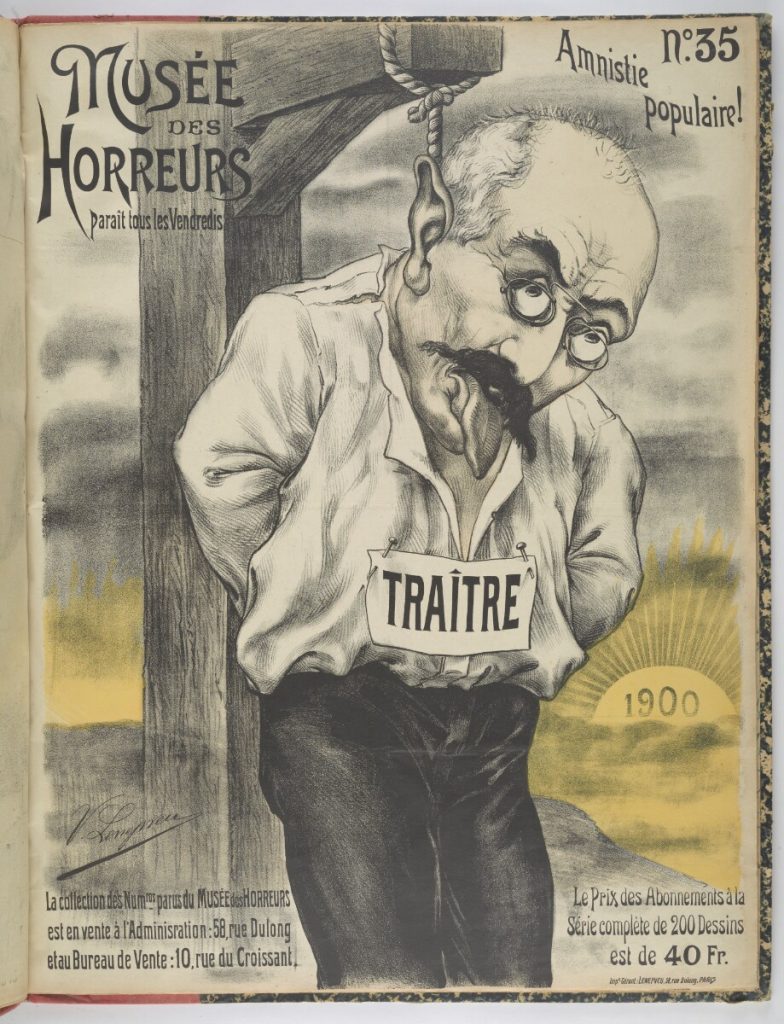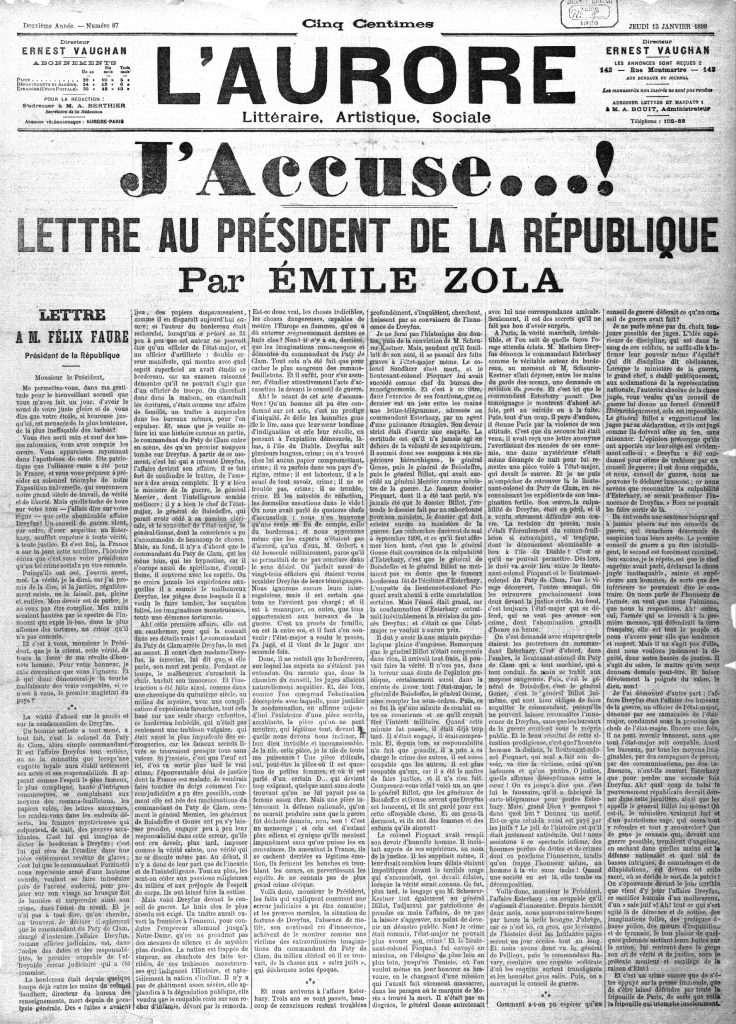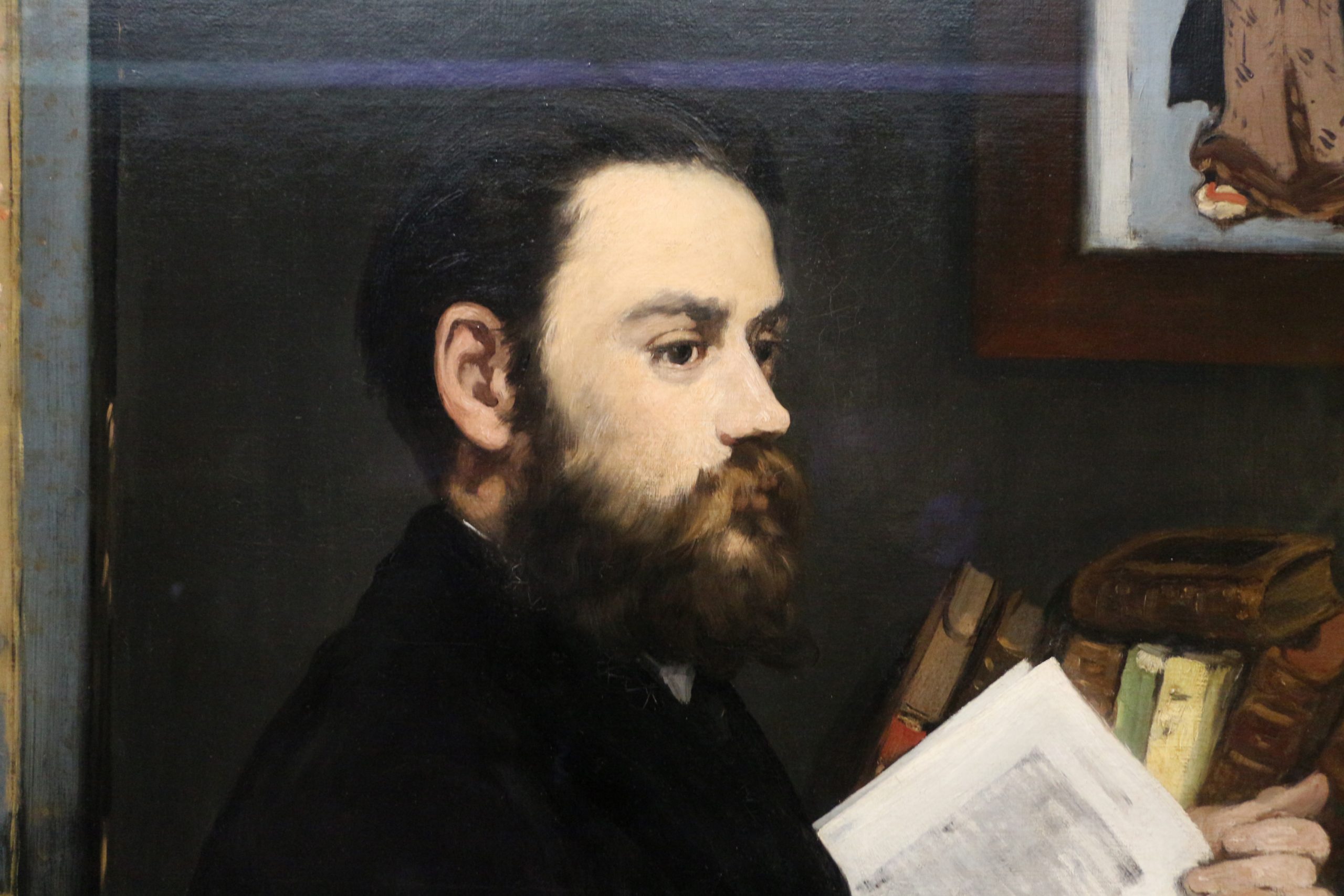Today marks the 127th anniversary of the historic publication of writer Émile Zola’s article “J’Accuse…!” in which he condemns the French government’s mishandling of the “Dreyfus affair”. Alfred Dreyfus was a French artillery officer of Jewish descent who was wrongfully convicted of treason when handwriting experts allegedly matched his handwriting to a note sharing French military secrets discovered at the German Embassy. This note, which later became known as the bordereau, proved to be a pivotal piece of evidence in prosecuting Dreyfus, earning him a life sentence in prison.

Alfred Dreyfus
Anti-semitic sentiments were at an all-time high in France, brought upon by the rise of nationalism and exacerbated after the influential 1886 publication of “Jewish France” by Édouard Drumont, the director and publisher of the anti-Semitic newspaper La Libre Parole.
Much of the press following the Dreyfus Affair only reinforced anti-semitic sentiments, often with defaming language and imagery. No. 35 Amnistie populaire published an illustration of Dreyfus’ lifeless body hanging from a noose, only one example of the violent and public hatred for Jews during the time of Dreyfus’ imprisonment.

No. 35 Amnistie populaire’s cartoon of Dreyfus. Duke University library, Public domain
A few years into Dreyfus’ life sentence, new evidence came to light revealing French Army Major Ferdinand Walsin Esterhazy as the culprit responsible for divulging French military secrets to the German embassy, supposedly proving Dreyfus’ innocence.
However, the new evidence was largely suppressed and failed to exonerate Dreyfus, instead adding additional charges to his case. Although Esterhazy, the real culprit, did go to trial, it lasted only two days and without skipping a beat, the military court unanimously acquitted him.
Alfred Dreyfus’s wrongful treason conviction and imprisonment let to the subsequent publication of “J’accuse…!” which incited growing criticism of Jewish French artillery officer the military and government for the cruel treatment of Dreyfus.

Front page cover of the newspaper L’Aurore for Thursday 13 January 1898, with the letter J’Accuse…!, written by Émile Zola about the Dreyfus affair. The headline reads “I Accuse…! Letter to the President of the Republic.”
By Émile Zola – File:J’accuse – Gallica – page 1, Public Domain, Wikimedia Commons
Zola’s letter, which took the front page of the January 13, 1898 edition of L’Aurore, argued that “the conviction of Alfred Dreyfus was based on false accusations of espionage and was a misrepresentation of justice.” Throughout, he points to the numerous legal mishaps and lack of serious investigation in Dreyfus’ persecution, ultimately putting pressure on the government to reopen the case and reinvestigate the charges.
At the end of the letter, Zola concludes with an exhaustive list of the people he accuses as having taken part in the mistreatment and false criminalization of Dreyfus. As a result of the bold publication and the escalating social unrest it provoked at home and abroad, Zola was prosecuted for libel and fled France for one year.
In 1899, there was a retrial which occurred as a result of the divide in French society between those who believed in Dreyfus’ innocence and those who condemned him. Although the new trial produced another conviction and a ten-year sentence, Dreyfus was pardoned and released from serving the rest of his time. His rank was reinstated in the army and he served in World War 1 as a lieutenant colonel before dying in 1935.



